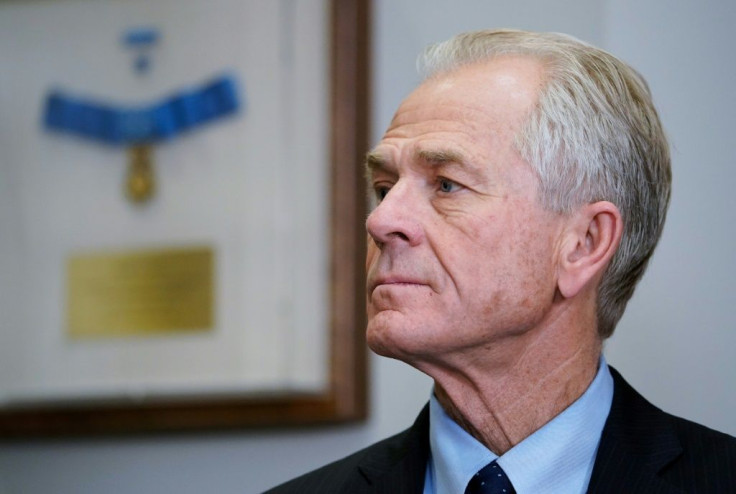Trump Adviser Warned The President Of A Devastating Coronavirus Impact In January

KEY POINTS
- Trump was warned of dire COVID-19 consequences in two separate memos earlier this year.
- The "prophetic" memos were written by his top economic adviser, Peter Navarro.
- Trump imposed a travel ban on China because of these memos, but plenty have still traveled from China to the US.
President Trump's top economic adviser Peter Navarro circulated a memo (first obtained by Axios) January warning the White House that the coronavirus could claim more than half a million American lives and could cause close to $6 trillion in economic damage. The memo showed that the White House had ample early warning, from within the administration, of the crisis that was to engulf the U.S. within a few weeks.
In February, the same day the president told reporters that “we have it very much under control in this country,” Navarro sent a second memo addressed directly to Trump, warning that the United States was facing “increasing probability of a full-blown COVID-19 pandemic that could infect as many as 100 million Americans, with a loss of life of as many as 1.2 million souls.” Former top Trump adviser Steve Bannon called the memo "prophetic," while Democrats have launched ad campaigns in states like Pennsylvania criticizing Trump, asserting that “crisis comes to every president. This one failed.”
According to the New York Times, Navarro’s warnings were viewed by many within the White House as simply another expression of his hawkishness on China, especially given the fact that he titled the memo “Impose Travel Ban on China?” While outlining a near-worst case scenario from COVID-19, Navarro argued on behalf of a 12-month travel ban to China that Trump was responsive to.
At a White House briefing on April 3, the president said “I cut off China very early,” but an analysis done by the Times the very next day found that 430,000 people have traveled from China to the U.S. since the coronavirus surfaced, calling into question the effectiveness of the travel ban.
Navarro’s memos shine a new light on a still-developing situation, as they provide proof that the White House was internally grappling with an issue they were publicly claiming to be contained at the same time. As the fallout from COVID-19 in America has become increasingly dire, the administration’s early response is coming further under question, as the initial claims that the outbreak would resemble the seasonality of the flu are belied by passages from Navarro's memo stating that it is “unlikely the introduction of the coronavirus into the U.S. population in significant numbers will mimic a ‘seasonal flu’ event with relatively low contagion and mortality rates.”
According to Johns Hopkins University, the U.S. currently has 368,533 confirmed cases -- more than double that of Spain, the country with the second-most confirmed cases of COVID-19.
© Copyright IBTimes 2025. All rights reserved.





















